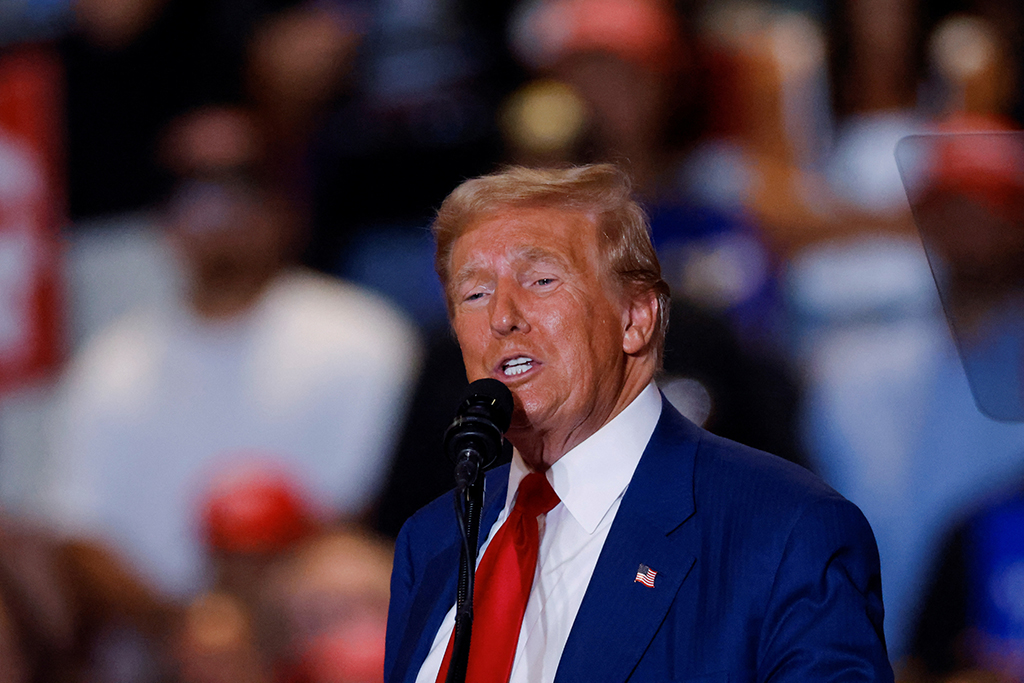A recently leaked video featuring Donald Trump has reignited concerns about his authoritarian tendencies and his troubling attitude towards violence. The video reveals Trump’s alarming instincts, particularly when discussing the Constitution and the electoral process. Each time he mentions these foundational aspects of American democracy, he expresses a desire to rewrite or even terminate them, raising serious questions about his respect for democratic institutions.

In the video, Trump is seen conversing with popular live streamer Aiden Ross, who notably gifted him a Cybertruck adorned with an assassination photo. During their exchange, Trump shares his admiration for North Korean leader Kim Jong-un, describing him as “the absolute leader.” He recounts a meeting in Singapore, where he was struck by the way Kim commanded respect from his followers, stating, “When he’s around, his people are standing up at attention.” This statement underscores Trump’s admiration for authoritarian power, positioning Kim as a model for leadership that Trump seems to covet.
The implications of this admiration are concerning. Trump’s relationship with Kim Jong-un suggests a troubling alignment with authoritarianism, as he expresses a desire for his own supporters to exhibit similar loyalty and deference. This is not merely a matter of political strategy; it reflects a deeper inclination towards dictatorial governance, a tendency that has alarmed many observers.
Moreover, the leaked video further complicates Trump’s narrative surrounding the Black Lives Matter (BLM) protests. In a separate clip, Trump recounts a phone call with Minnesota Governor Tim Walz during the height of the protests, framing it in a bizarrely dismissive manner. He describes how Walz claimed to be surrounded by people with American flags and expresses concern for his safety. Instead of treating this situation with the gravity it deserved, Trump and the audience laugh at the notion of Walz being in danger. This reaction highlights a disturbing lack of empathy and a propensity to trivialize violence against political figures, especially those who oppose him.
The contrast between Trump’s rhetoric and the reality of the situation is striking. While Walz was addressing legitimate fears regarding the safety of his family and community, Trump’s dismissive laughter indicates a troubling disregard for the seriousness of political violence. This lack of respect for democratic processes and the safety of public officials is emblematic of Trump’s authoritarian leanings.
Adding to the complexity of this narrative is the ongoing discourse about Trump’s interactions with various political leaders. His disdain for liberal allies, such as Justin Trudeau and Angela Merkel, further illustrates his desire to undermine traditional alliances in favor of a more autocratic style of governance. By praising authoritarian figures like Kim Jong-un while deriding democratic leaders, Trump signals a clear preference for power over principle.
The leaked video serves as a stark reminder of the potential consequences of Trump’s leadership style. His admiration for authoritarianism, coupled with a willingness to laugh at violence, raises critical questions about the future of American democracy. As he continues to undermine the electoral process and the rule of law, the risk of normalizing such behavior becomes increasingly tangible.
In conclusion, the leaked video of Trump laughing at violence not only confirms suspicions about his authoritarian instincts but also serves as a warning about the implications of his leadership. As we navigate this complex political landscape, it is essential to remain vigilant against the erosion of democratic values and the normalization of violence in political discourse. The stakes have never been higher, and the need for a robust defense of democracy is paramount.





